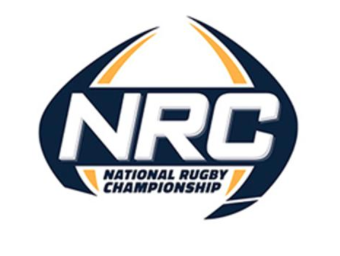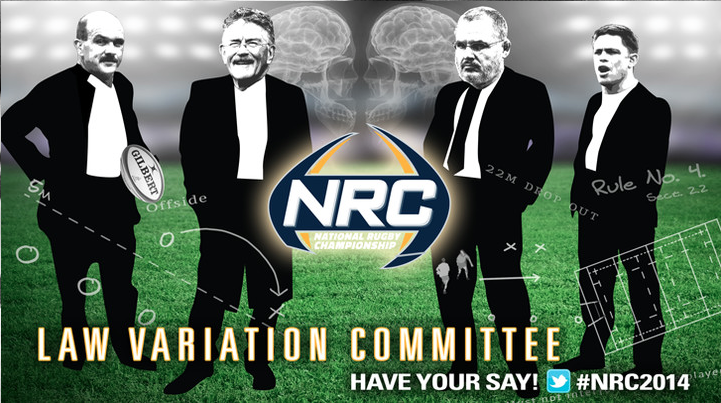The official law variations for this season’s National Rugby Championship have been approved by the IRB and have been announced at the official launch of the NRC at Coogee Oval today.
The long process included over 600 votes from fans; a review by a panel of experts (which included former Wallabies coach Bob Dwyer, former international Rugby referee Wayne Erickson, former Wallaby Rod Kafer and Wallabies coach Ewen McKenzie); over 6000 votes a shortlist of suggestions and feedback from fans on the Green and Gold Rugby online forums.
ARU CEO Bill Pulver was confident that the changes will provide an exciting and entertaining brand of rugby.
“While maintaining the integrity of the game, we want to see a more creative style of Rugby being played where risk and attack are rewarded.”
“We also want to see more continuous play and less time wasted.
“Involving fans in this process has been a terrific way to re-energise the passionate Rugby fan base and ensure the Buildcorp NRC has the interests of Rugby supporters at its core.”
Competition and Law Changes
1. Reduce penalty goal and drop goal value to two points; and increase conversion goal value to three points
– Most requested variation during idea submission stage of NRC Law variation process
– Places greater value on try scoring
– Already trialled in South Africa’s Varsity Cup
– Referees to be strong with cynical or repeated infringements
2. Instead of four try bonus point system, the winning team is awarded a bonus point for finishing three or more tries ahead of their opponents
– Maintains ‘reward for risk’ aspect of matches for full 80 mins
– Currently used in France and in the ARU’s Junior Gold Cup
3. Pre-2013 TMO protocol to be used (i.e. for try scoring and in-goal situations only)
– Reduces time wasted on referrals by limiting what can be referred
Referee Interpretation Changes
1. “If non-throwing team does not contest for the ball near where the ball is thrown, the referee may apply material effect and play on if the throw is not straight”.
– Voted #1 variation by the public
– Designed to encourage every line-out to be genuinely contested
– Even if not straight, the ball must be caught within the line of the outside shoulder – i.e. the ball may not be deliberately thrown not straight
2. After time expires at half-time and full-time, if awarded a penalty kick, player can kick to touch and play the lineout
– Voted #2 variation by the public
– The referee is the sole judge of time
– Allows a non-offending team all the options they are normally entitled to, and eliminates a negative tactic that can spoil the finish to a match
3. Reduced time limits down to 45 seconds for a penalty goal and 60 seconds for a conversion
– Reduces time wasting
– Currently at 90 sec for conversions and 60 sec for penalty goals and is loosely monitored
4. Manage a time limit (30 seconds) to set a scrum
– Reduces time wasting
– 30 seconds to start from when referee makes mark
– Allowance will be made for genuine injuries
– Ability to move scrum away from a minor injury to continue play
5. Defending half-back cannot enter area (“pocket”) between flanker and number 8 at scrum
– Assists with continuous play
– Allows for dominant scrum and halfback to exert some pressure, but the halfback must not contact the scrum at any stage
6. Increased latitude in the area where quick taps can be taken at a penalty or free kick
– Any tap must be taken from behind the mark, some leeway given on width
– All scrum penalty and free kicks must be taken by or in line with the number eight
7. More focus on applying Laws once maul formed
– Aims to discourage the “hold up tackle” by ensuring that once defending players hold a ball carrier up and create a maul, they don’t then immediately collapse the maul to engineer a turnover
8. Quick throw-ins allowed even if touched by another player or person; must be same ball
– Frees teams from a technicality that will allow for quicker play.
– If support staff or reserves deliberately touch the ball, a penalty kick is awarded 15m in.
Do you agree with these new law variations? Comment below what laws you think have been left out or that should not have been included.



